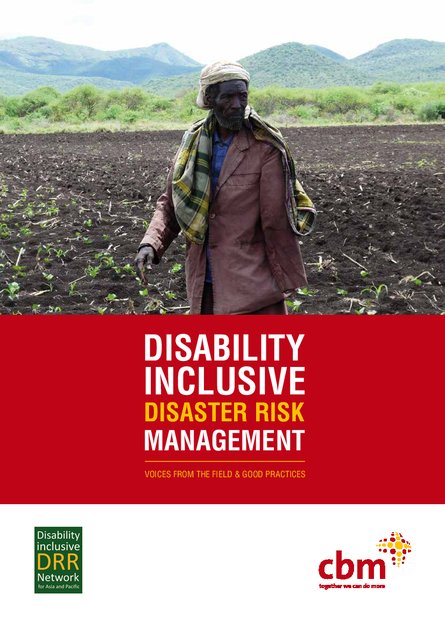
This publication would like to contribute with advocating for a more inclusive DRR where persons with disabilities are active participants and not overlooked in relief and response actions. The practices and experiences presented here are challenging the stereotype of persons with disabilities as helpless victims, and instead showing them as effective agents in changing this exclusionary system. Their voices are introduced here to demonstrate that with the right attitude, knowledge and by making sure to provide equal opportunities for all, inclusion is possible.
Through these testimonies and individual stories, the capacity of persons with disabilities and their families in making disaster risk reduction plans and programs inclusive are shown. If supported by well-informed and disability-aware humanitarian organisations, governmental authorities and international organisations, there is possibility to make sure that persons with disabilities, 15% of the world’s population, have equal opportunity to improve their resilience towards disasters.
Eleven good practices of Disability inclusive Disaster Risk Reduction experiences have been gathered that show concrete practical examples of how persons with disabilities are active participants in various DRR interventions. Organisations developing sustainable resilience mechanisms to disasters and climate change effects have become aware of the added value that trained and knowledgeable persons with disabilities bring.